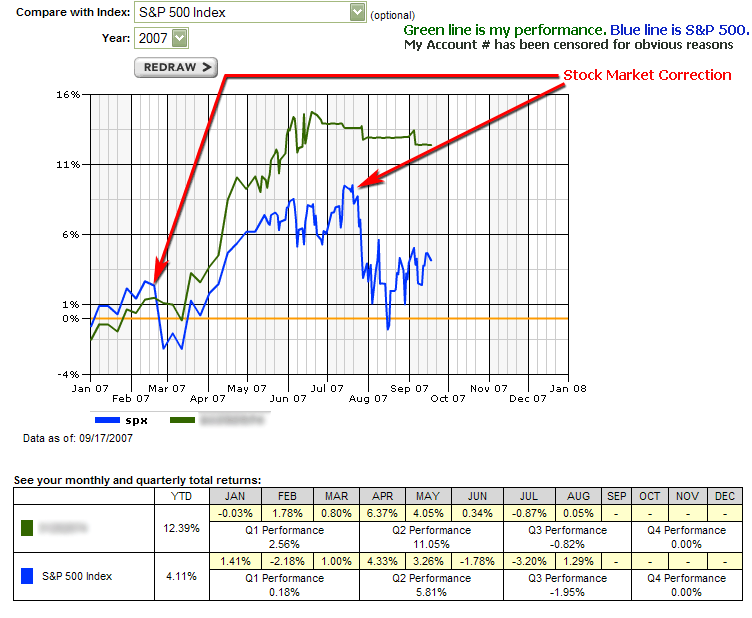It is important when viewing this article to keep in mind that no one can truly know if and when a stock market correction or crash will occur. However, it is entirely possible to spot the signs of a coming correction or crash, and this article will show you how to assess the current market to help you decide whether you should stay in the market, short the market, or stay out of the market.
Spotting signs of a potential stock market correction or crash is a relatively easy task if you understand basic economics and if you are keeping up with the market on a daily basis. However, if neither applies to you, look for a combination of most, if not all of these signs as indicators of a potential stock market disaster (these signs by themselves aren’t enough reason to expect market declines):
Fundamental Problems Exist in the Economy
The Dotcom bubble in the late 90’s came to a hard crash after it became apparent that the hype of the online business models were not successful. The Dotcom bubble is a perfect example of a significant fundamental problem that once existed in the economy but was ignored by the stock market as it rallied higher. During the Dotcom bubble, the stock market rallied significantly as investors couldn’t get enough of the internet companies. The problem was that most of these companies weren’t profitable, some never intended to be either, choosing to ride the momentum of the stock market to make the most amount of cash they could off their stock. So while the stock market soared, our economy told a different story. If you observe fundamental problems in the economy while the stock market itself is rallying, be wary of a potential correction or even possibly a crash (although a crash seems unlikely).
Extended Amounts of Violent Volatility
If you are noticing high levels of volatility in the stock market for an extended period of time, this is a clear indication that something is wrong in the stock market. High volatility is nothing unusual by itself, and can arguably be considered healthy for the stock market. However if the stock market is experiencing see-saw like volatility (for example: one day the market rallies and the next day it plummets) for long periods of time, such as over a month’s time frame, then this is a sign there is too much confusion and confliction about which direction the stock market is heading.
Financial Media Reports Only Noise
If it seems like all you read or hear lately from the financial media is how our economy is in trouble, how there are serious underlying issues that need to be addressed, etc., then you are listening to what is known as noise. When you notice that the financial media has nothing but noise-like information to report for extended periods of time, then fear and instability get planted into the stock market. This relates with the psychology of investing, and it is important because a market that has seeds of doubt planted into it make it a fragile market, easily capable of correcting or crashing.
Unjustified Stock Market Prices
Identifying this sign does require knowledge of market prices, but you can simplify this and look at how high the three most popular indexes are (Dow Jones Industrial Average, NASDAQ, S&P 500). Read statements from the Federal Reserve and respected market analysts, and consider what our economic forecast for the year is. Ask yourself, how much has our economy grown so far in comparison to our stock market. Is there an inverse relationship? Should the market be at these high prices? If the answer is no, you know that the stock market can drop much lower than it can rally higher. Thus your risk is much higher than your reward. More about the risk versus reward will be discussed further in the article (yeah, it’s a long one).

Now that you’ve learned the technique to identify a fragile and correction/crash prone stock market, you now need to learn how to decide what your best plan of action is to be. If you read my other article “The Fundamentals of Successful Investing“, you know that having a plan is crucial. Even more so than usual, as a plummeting stock market catches most investors by surprise, so they have no plan to escape the chaos and ultimately fall victim to their emotions. This is arguably one of the reasons why panic selling occurs during a stock market correction and leads to a crash. You have three basic decisions after you’ve reached your conclusion on the market, you can either:
1. Short sell the market
2. Buy long or stay long positioned the market
3. Sell your positions, stay 100% in cash and wait for a good re-entry point
So the question becomes, which move is the right one? To rationally consider the best choice of action, attempt to envision all of the problematic variables in the stock market. What could go wrong, what could go right, and what is realistically going to happen. If the potential risks of your plan of action outweigh the potential rewards of your plan of action, then you should reconsider. Remember, the key to successful investing is using a rational approach to form opinions of the market. If you know you’re putting yourself more at risk than you are at reward, you aren’t being rational.
If you find that the potential risks and rewards are about the same, then you should stay out of the stock market. When you can’t make a good decision because the stock market’s future looks too open to speculation, then there is no reward, just risk. Staying in a market that realistically could go either way (up or down) is not investing, it’s gambling. How can you have a plan of action when you aren’t even sure which way the market will go? The answer is to stay out of the market, and wait for a clear sign that the confusion has ended, and it is time to re-enter the market.

 Walk the Walk, not just talk the talk. The techniques posted in this article are strategies I developed over time. Using these techniques I was able to avoid two stock market corrections in 2007. Here is a picture I took off my E-Trade account showing my performance versus the S&P 500. Note the stock market corrections that occurred and the performance of my portfolio not being affected. Click the image to enlarge it.
Walk the Walk, not just talk the talk. The techniques posted in this article are strategies I developed over time. Using these techniques I was able to avoid two stock market corrections in 2007. Here is a picture I took off my E-Trade account showing my performance versus the S&P 500. Note the stock market corrections that occurred and the performance of my portfolio not being affected. Click the image to enlarge it.




 The investing industry is one that is plagued with a history of deceit. Fortunately for the average investor, the
The investing industry is one that is plagued with a history of deceit. Fortunately for the average investor, the